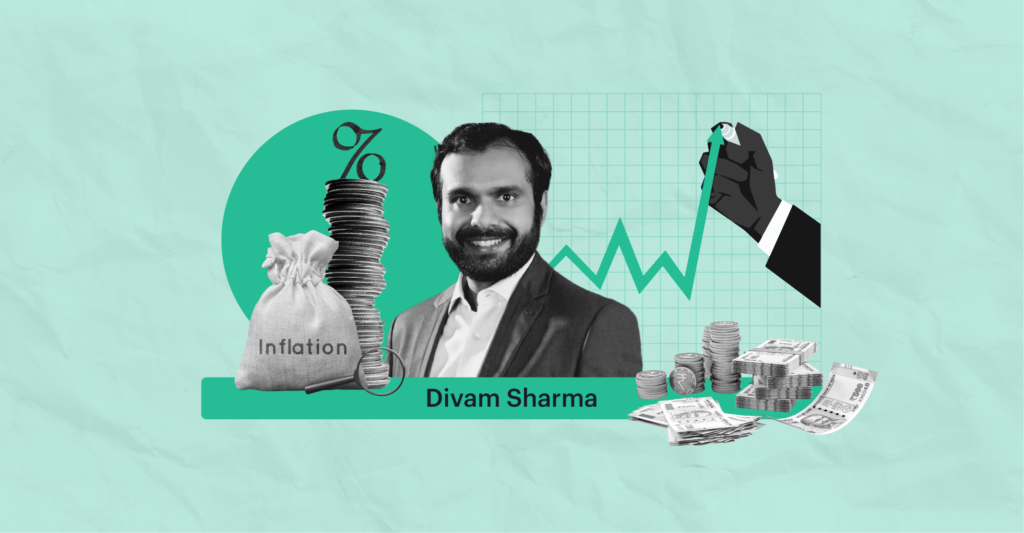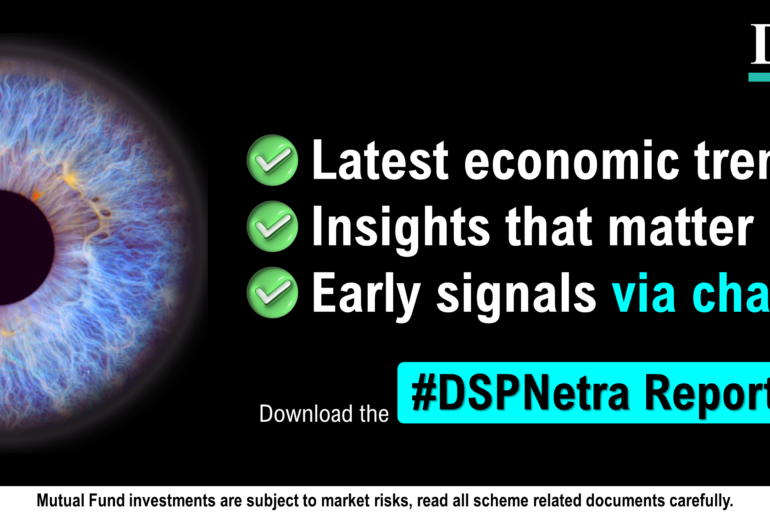Last Updated on Nov 15, 2022 by
You know what I’m talking about when I talk about the trending “I” word.
Yes, it’s inflation, and it is unavoidable. Hearing this word fills our hearts and brain with stress, anxiety, and uncertainty. It is said that investing smartly to hedge against inflation is one of the most important aspects of Smart Investing. Beating inflation is also needed as the primary objective of investing and maintaining purchasing power parity. So, we believe that not savings but investing in the right instruments can help you beat inflation.
Skyrocketing inflation coupled with high-interest rates has led to high volatility in the market. Geopolitical tensions and supply chain disruption are a few reasons. Amidst all this, this article will walk you through all the instruments in the equities markets that you can look into if you want to shield your future from inflation.
- High dividend stocks – Investors can look into dividend yield funds. These funds aim to invest in companies with high consistent cash flows, stable dividend income, and a high potential for capital appreciation. Rising inflation typically translates into rising interest rates. The companies that can absorb cost rises typically have high operating margins and low debt. These companies are expected to announce consistent dividends and get higher valuation multiples during these times. Green Portfolio’s High Dividend Yield smallcase is something you can look at.
- REITS – Real Estate Investment Trust (REIT) is a structure that owns and operates commercial real estate. These are entities that manage portfolios of high-value real estate properties and mortgages. For example- Rent collected from these owned buildings is distributed amongst investors as dividends. The concept is gaining popularity globally as REITs have delivered competitive returns in terms of long-term capital appreciation and regular dividend income.
REITs tend to perform well in an inflationary pressure environment, the reason being high returns due to increased property prices and rents with inflation. These units are also highly liquid and traded on the exchange like shares. Brookfield India Real Estate Trust, Mindspace Business Parks and Embassy Office Parks are a few examples.
- Bonds and fixed-income mutual funds – An investor can plan for inflation by diversifying their portfolio in those fixed-income products that outperform during high price periods.
Bonds provide a fixed income for investors through regular payouts or a cumulative increase in the NAVs (when held to maturity). There might be short-term volatility in bonds with the interest rate changes. You can look at AAA-rated corporate and credit-risk bonds from fundamentally strong banks and NBFCs.
Investors can invest in corporate bonds or credit-risk bonds through mutual funds. Some of these mutual funds are also traded on the exchange as ETFs. Bharat Bond is an example of a bond ETF that invests in AAA-rated debt of public sector companies. It is also India’s first corporate bond ETF. Mutual funds investing in corporate and credit-risk bonds can help you beat inflation. These products gain popularity in the high-interest environment and outperform traditional products like fixed deposits considering high yields and liquidity.
Investors considering fixed income can also look at new-age products like invoice discounting and fractional ownership investments in their quest to beat inflation.
- Gold – Gold is considered a haven by many investors. The prices of the yellow metal have rallied during high inflation periods. Apart from the traditional form of physical gold, investors can also explore other options like Gold ETF, Digital Gold or Sovereign Gold Bond (SGB). Almost every wealth manager would ask you to invest a certain percentage of your investment into a gold portfolio due to diversification. All the other three options are digital ways of investing in the asset. Gold ETF and SGB are exchange-traded, but digital gold can be traded 24*7; hence there is a liquidity differentiator. Other factors are to be considered, like maturity time, lock-in period and costs associated with the investment.
Takeaway
Although the global economic situation is not perfect, India is still better placed than most countries. Gone were the days when we relied on Foreign Portfolio Investors to drive market valuations. The Indian economy is thriving through Foreign Direct Investments. We still believe that stock markets are the best way to consistently beat inflation in the long run if you look at the 40 yrs history of Sensex, lower taxation and high liquidity as other factors.
Several options are available to individual investors where they can beat not only inflation but also earn stable returns. They can also invest in sectors that benefit from high inflation.
If you’re an individual investor, you can also invest in smallcases. Smallcase is a ready-made basket of stocks curated by expert fund managers. These are based on a particular theme/ strategy. If you find researching individual stocks difficult while wanting to invest in fundamentally strong companies, smallcase is the place for you.
Inflation increases risk exposure; therefore, we must make calculated decisions. Investors should do SIPs regularly and keep diversifying their portfolios to mitigate any risks, be it inflation or high-interest rates.
This article is written by Divam Sharma, Founder and CEO of Green Portfolio and a former analyst at CitiBank, IMGC, and Kotak Mahindra Bank. Check out Green Portfolio’s smallcases.
- New Age Companies, Blessing in Disguise? - Dec 20, 2022
- All Debt Is Not Bad Debt - Dec 12, 2022
- Investments That Can Help During Inflation - Nov 15, 2022



